Sound recognition Normal Worksheets for Ages 6-8
13 filtered results
-
From - To
Discover our engaging Sound Recognition Normal Worksheets specifically designed for ages 6-8! These worksheets enhance auditory skills crucial for early learning through fun and interactive activities. Children will explore various sounds, isolate them, and match them to corresponding illustrations or words, aiding in phonetic awareness and literacy development. Aligned with educational standards, our worksheets provide a solid foundation for reading and language skills. Perfect for classroom use or at-home practice, they will captivate young learners while building essential auditory discrimination abilities. Start your child's adventure in sound recognition with our expertly crafted worksheets today!
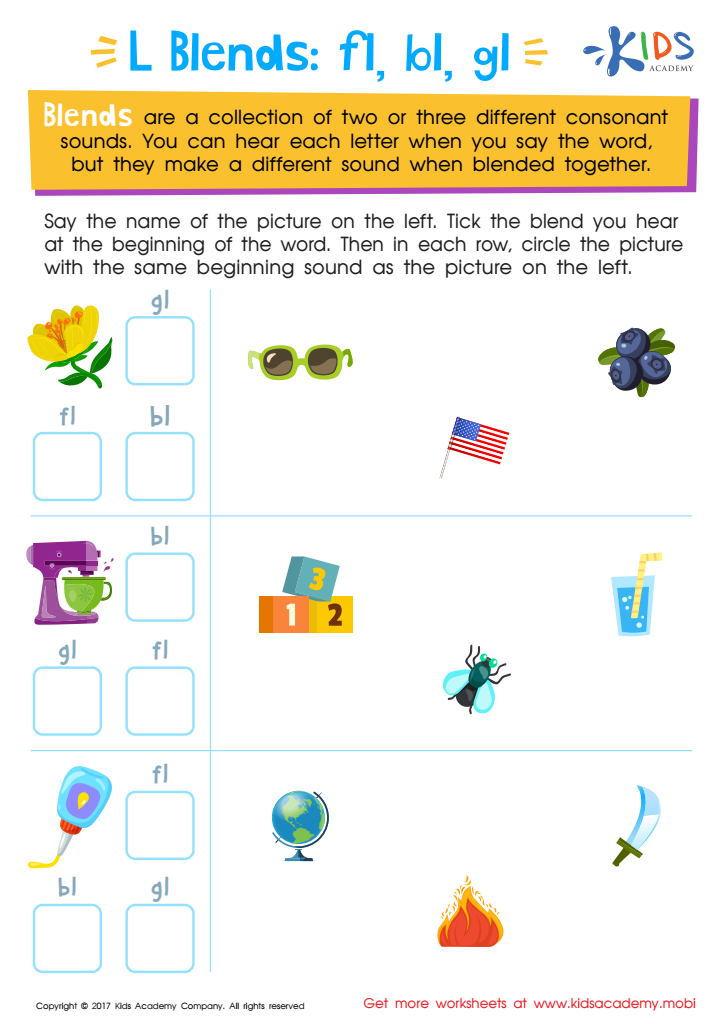

Blending Consonants: "Fl", "Bl" and "Gl" Printable
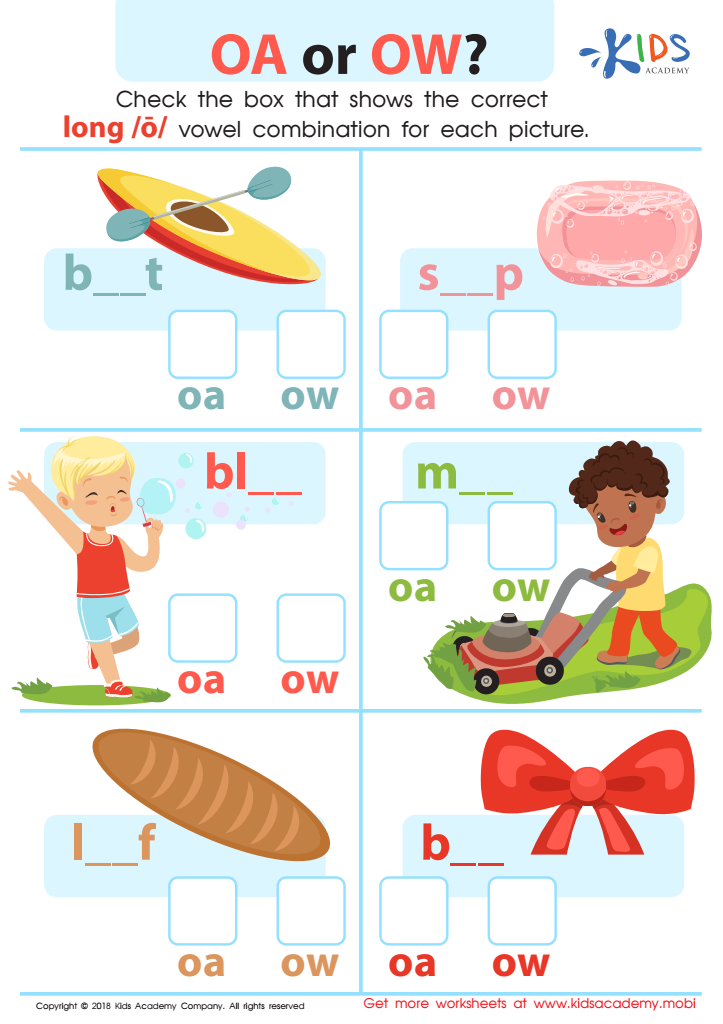

Reading: OA or OW Worksheet
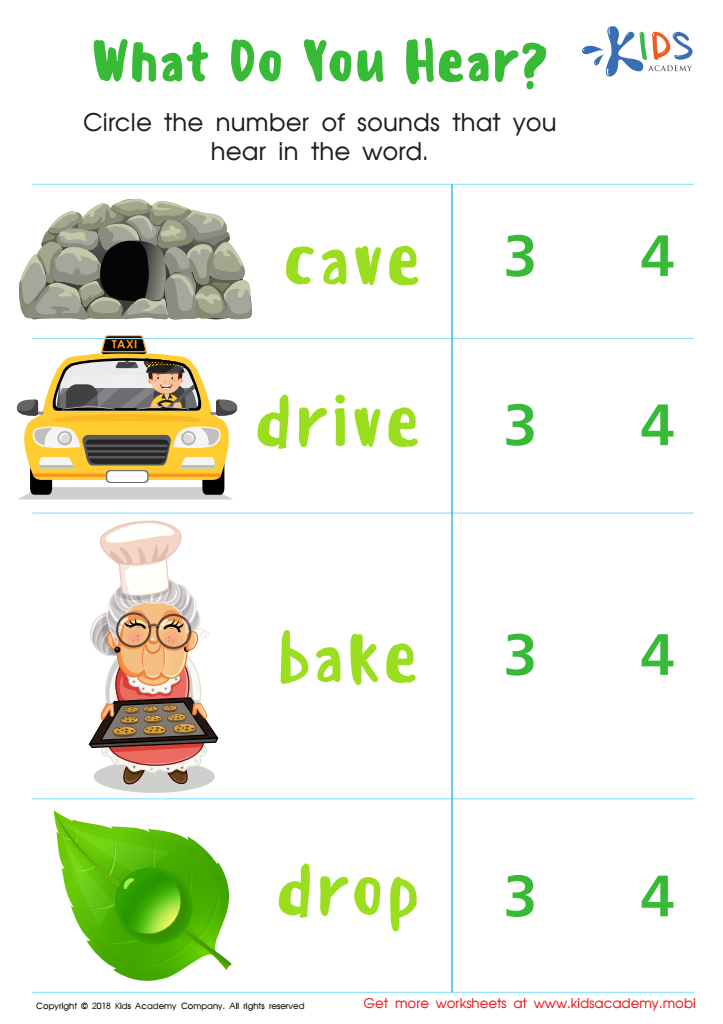

What Do You Hear? Worksheet


Rhyming Words Rhyming Worksheet
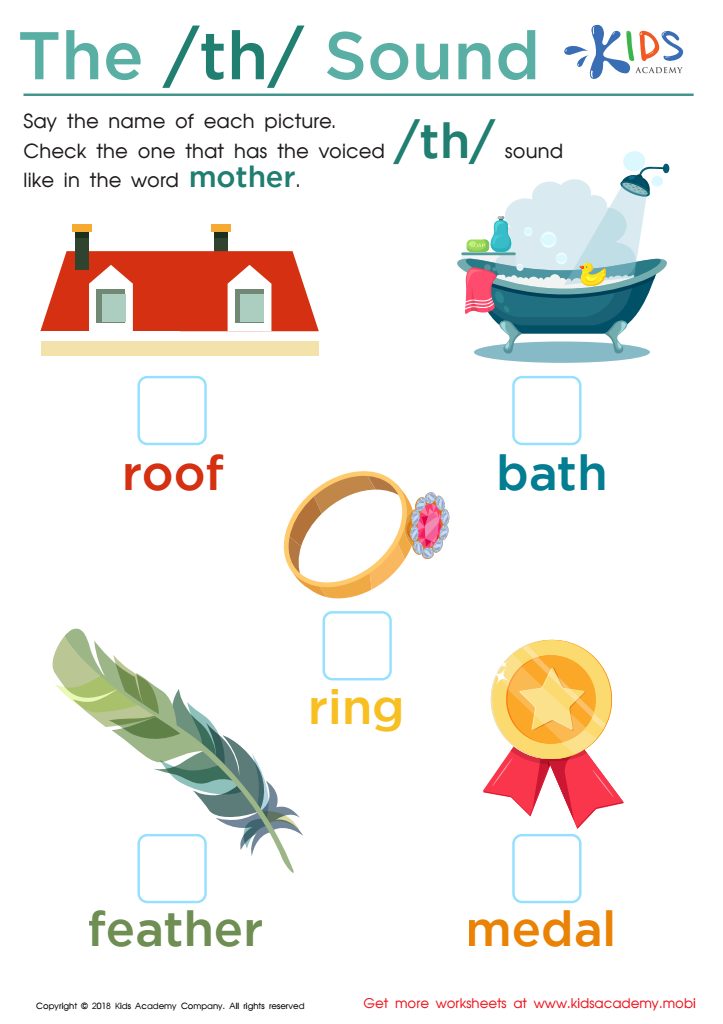

The /th/ Sound Worksheet
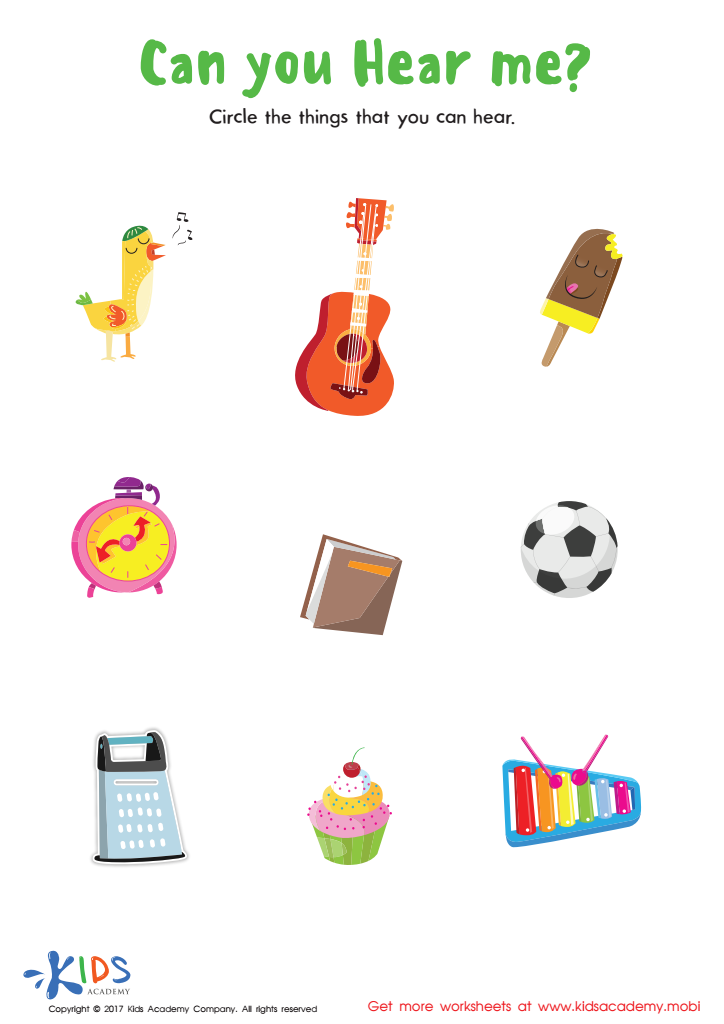

Can You Hear Me Worksheet


Long and Short U Worksheet
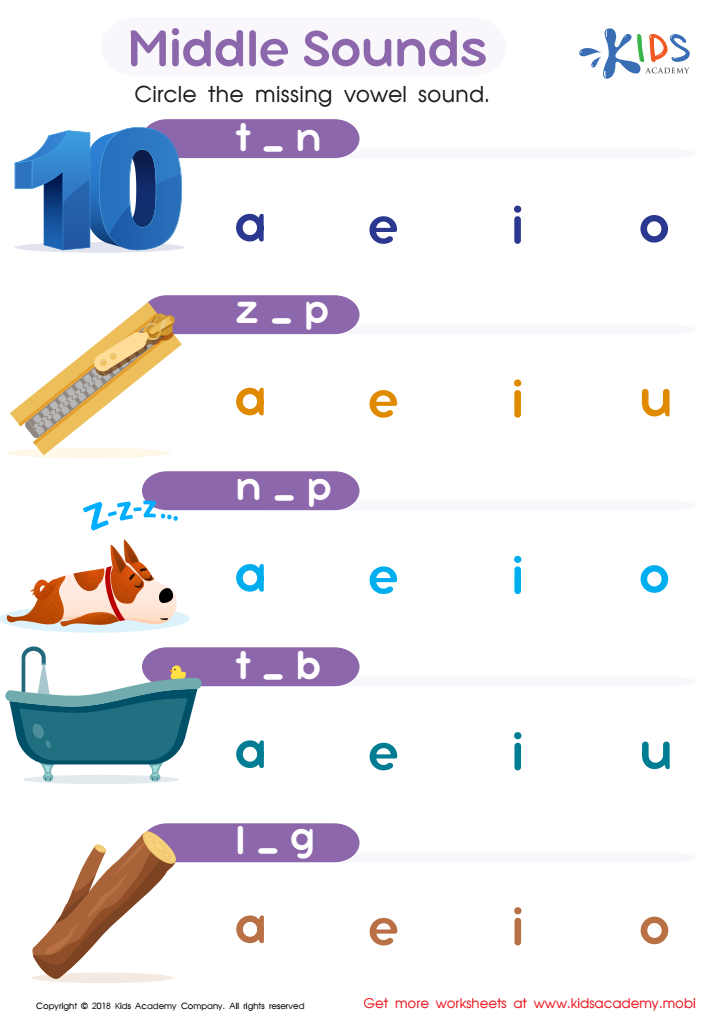

Middle Sounds Worksheet


First Words: Picture Rhymes Worksheet
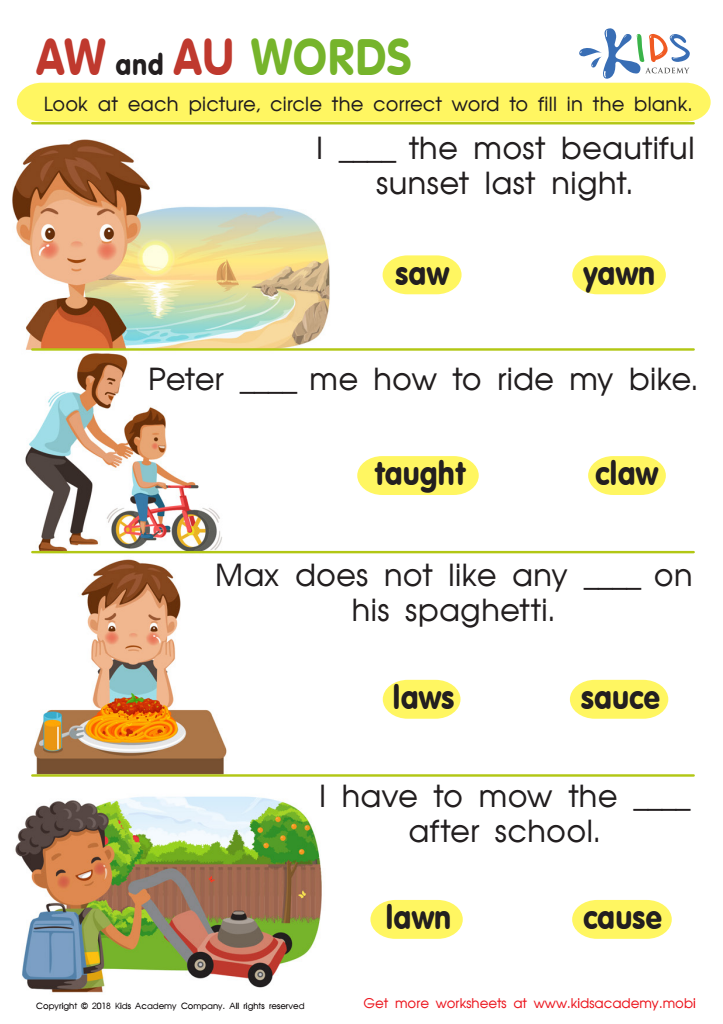

Reading: AW and AU Words Worksheet
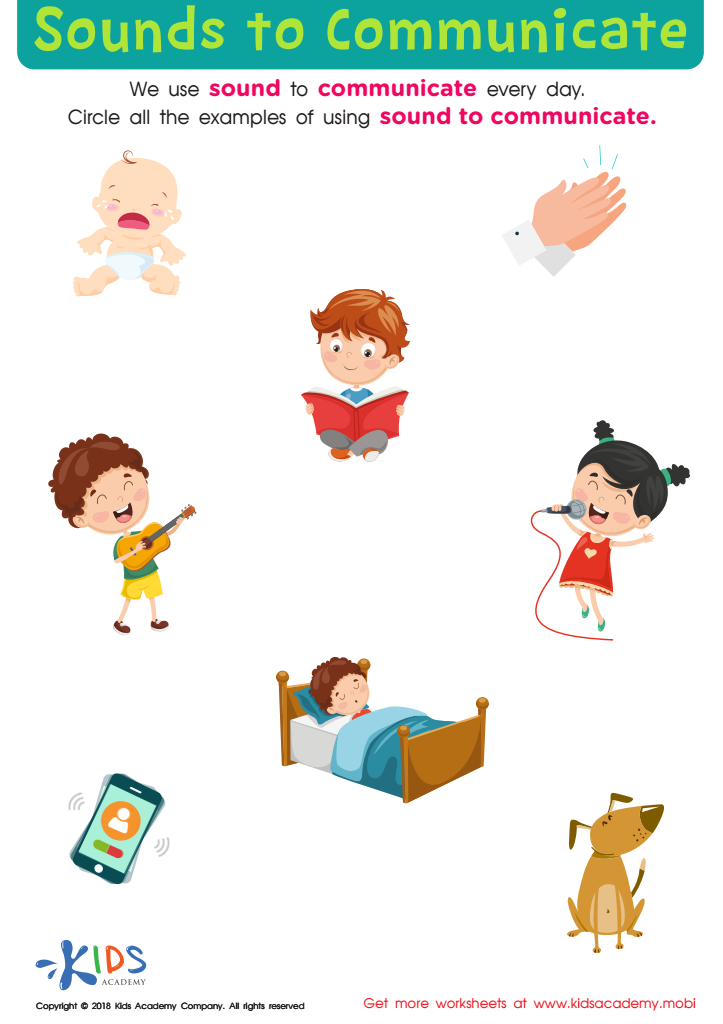

Sounds to Communicate Worksheet
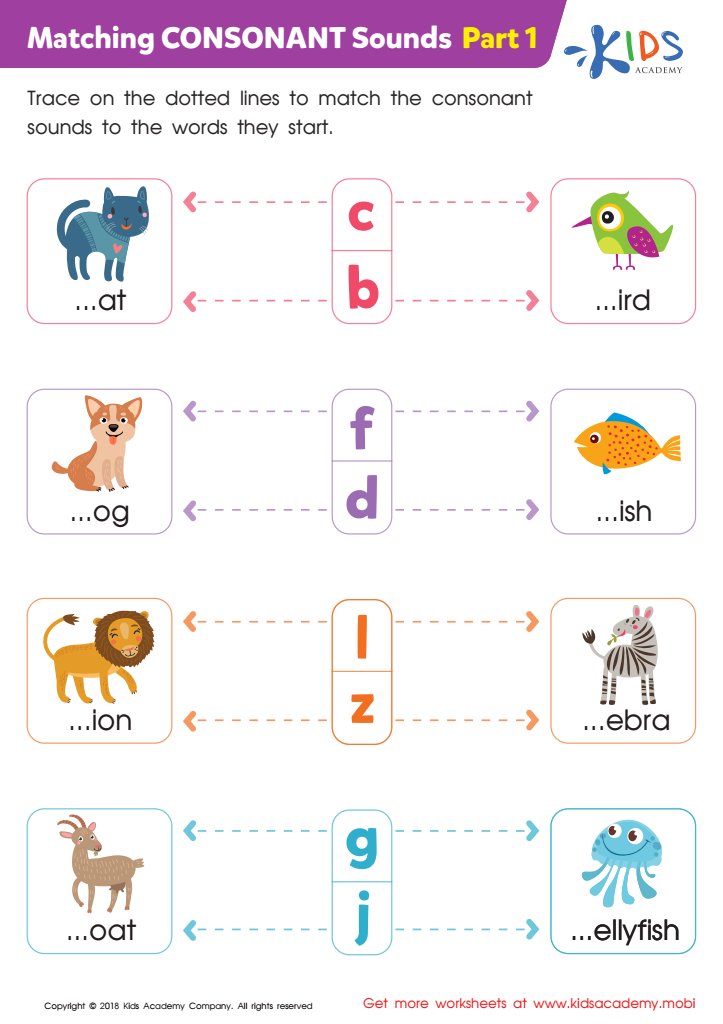

Matching Consonant Sounds: Part 1 Worksheet
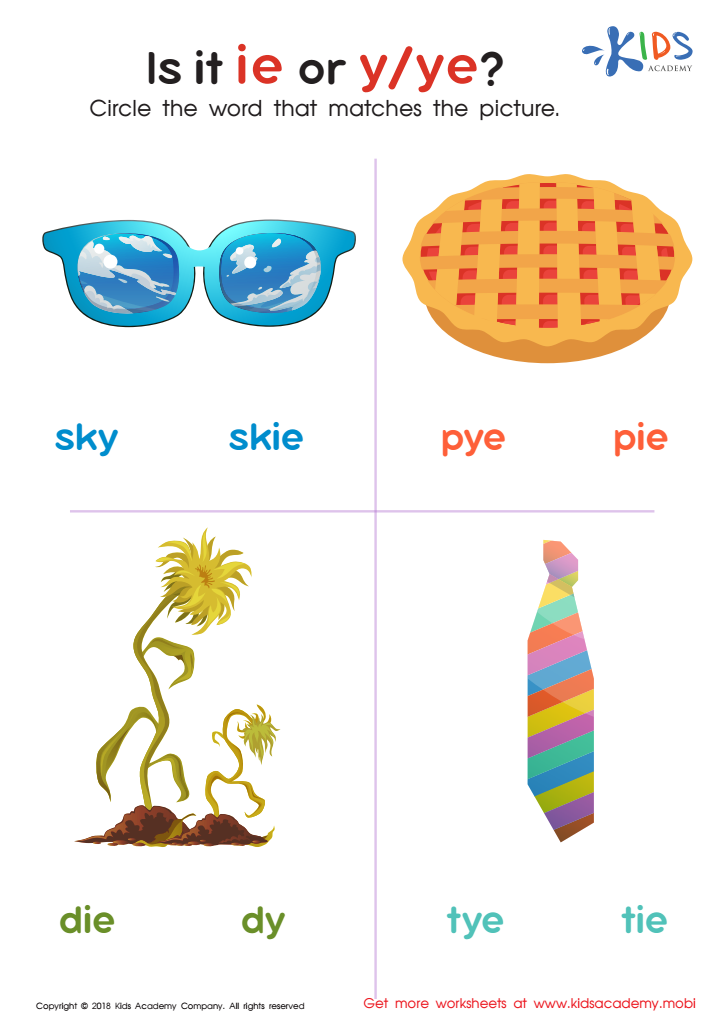

Is It IE or Y/Ye? Worksheet
Sound recognition plays a crucial role in the cognitive and linguistic development of children aged 6-8. During these formative years, children's brains are highly adaptable and responsive to learning new skills, including distinguishing and processing sounds. Parents and teachers should care deeply about sound recognition abilities because of their significant impact on reading and language proficiency.
When children can recognize and differentiate sounds accurately, they are better equipped to decode written language, an essential skill for reading fluently. Phonemic awareness, the ability to identify and manipulate phonemes, is a foundational component of reading development. Children who struggle with sound recognition often face challenges in reading comprehension, spelling, and overall literacy, which can have long-lasting effects on their academic success.
Additionally, sound recognition influences expressive and receptive language skills. By successfully recognizing sounds, children are able to articulate words more clearly and understand spoken language more effectively. This is essential for effective communication, social interaction, and learning across various subjects.
Therefore, both parents and teachers should prioritize activities and strategies that enhance sound recognition skills. This might include phonemic awareness games, reading aloud, and engaging in exercises that involve auditory discrimination. These efforts will support children's academic and social development, setting a solid foundation for future learning.
 Assign to My Students
Assign to My Students











.jpg)










